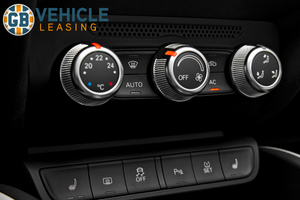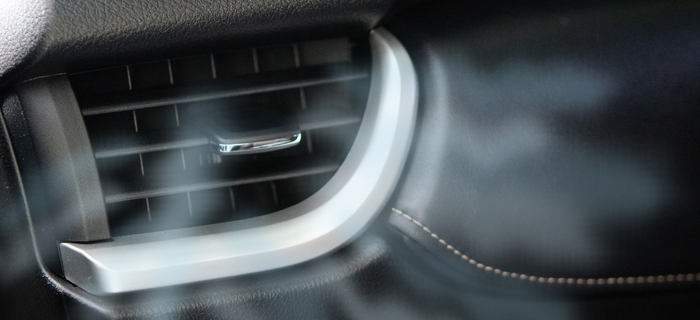
What is climate control in a car?
The terms "climate control" and "air conditioning" are frequently used interchangeably, but these systems have slight differences in their functions. In the past, air conditioning was a rare and exclusive feature found in luxury cars, however today, even the most budget-friendly new cars have it as standard.
But while air conditioning is now a standard feature in most cars, climate control is still an added feature that is often only available through an upgrade in trim level or as an additional add-on.
In this article, we've decided to look at what exactly is climate control and key differences from air conditioning. We hope you find this useful when choosing your next car to meet your requirements.
What is air conditioning?
Air conditioning, also referred to as A/C, AC, or air-con, uses a fan to draw in warm air from the car's cabin. The warmth is removed and expelled from the car while cooled air is circulated into the cabin. It allows for the setting of a desired temperature for the car. Once the desired temperature is reached, the system will automatically turn off. Some air-con systems have individual temperature markers on an adjustable dial, while others have red (hot) and blue (cold) zones on the dial.
What is climate control?
Climate control is essentially an advanced version of air conditioning. It uses the air conditioning system, cabin blower fan, and heat generated by the engine to regulate the cabin temperature. Some systems offer dual-zone or tri-zone climate control, allowing you to set different temperature and fan speed for different areas of the car.
Does climate control use more fuel?
Yes, using the climate control system can increase fuel consumption. When you turn on climate control, the engine needs to work harder to power the compressor, which cools the air before it enters the cabin. This extra load on the engine can result in decreased fuel efficiency.
The impact of climate control on fuel efficiency is more noticeable in stop-and-go city driving or during idling. At motorway speeds, the effect is generally less pronounced. However, many modern vehicles are equipped with more efficient climate control systems that are designed to minimise the impact on fuel consumption.
What are the differences between air con and climate control?
Contrary to popular belief, there are a number of distinctions between climate control and air conditioning. The main difference is the temperature control setting. Air conditioning allows the user to set the temperature of the air being blown out and that's it. Whereas climate control is more automated in that it can maintain the desired temperature inside the vehicle without the need for manual adjustments. This means the temperature is more accurately controlled. Also, climate control is considered by many as the safer option among the two systems as it eliminates the need for manual adjustments while driving, therefore reducing distractions.

Is climate control better than air conditioning?
The cooling system that comes with a vehicle can vary depending on the model. Generally, newer and higher spec models come with climate control pre-installed. If you frequently spend a lot of time in your car or travel long distances, it may be worth considering climate control. The added convenience of not having to manually adjust the air conditioning can be a great benefit. Plus, climate control can be more economical than air conditioning because it's only used when required.
However, if you are working with a limited budget when looking for a new vehicle, air conditioning can provide a similar function to climate control, although it is less advanced, making it a cost-effective alternative to climate control.
Can air-conditioning be upgraded to climate control?
Upgrading a vehicle's air conditioning system to a full climate control system can be a complex and costly process. Not all vehicles are equipped with the necessary wiring, sensors, and components to support a climate control system. Upgrading may require significant modifications to the vehicle's electrical system, dashboard, and HVAC (Heating, Ventilation, and Air Conditioning) system. Also, you’ll need to purchase the climate control system components and pay installation costs. So, although it is possible, you should weigh the benefits against the investment before proceeding with such an upgrade.
If you’ve found this article interesting, visit our Facebook page for more tips and motoring advice. Also, view our related article - What is brake checking and is it illegal? Also, if you're interested in leasing a vehicle, click here to view our current special offers.
About The Author: Charlotte Kennedy
Charlotte joined the GB Vehicle Leasing team around 6 years ago starting out as an apprentice and is now being a key member of our marketing team.
Find Out More About CharlotteLatest Posts

Volkswagen Taigo vs T-Roc: How Do They Compare
Here, we explore how they compare...

Skoda Elroq Review 2025
Buckle up, folks! This new Skoda...

Pre-Registered Vehicles Explained
Learn what a pre-registered vehicle is...

Hyundai Inster Review 2025
Move over, conventional cars! The Hyundai...

Vehicle Delivery Lead Times Explained
From custom factory orders to in...



































